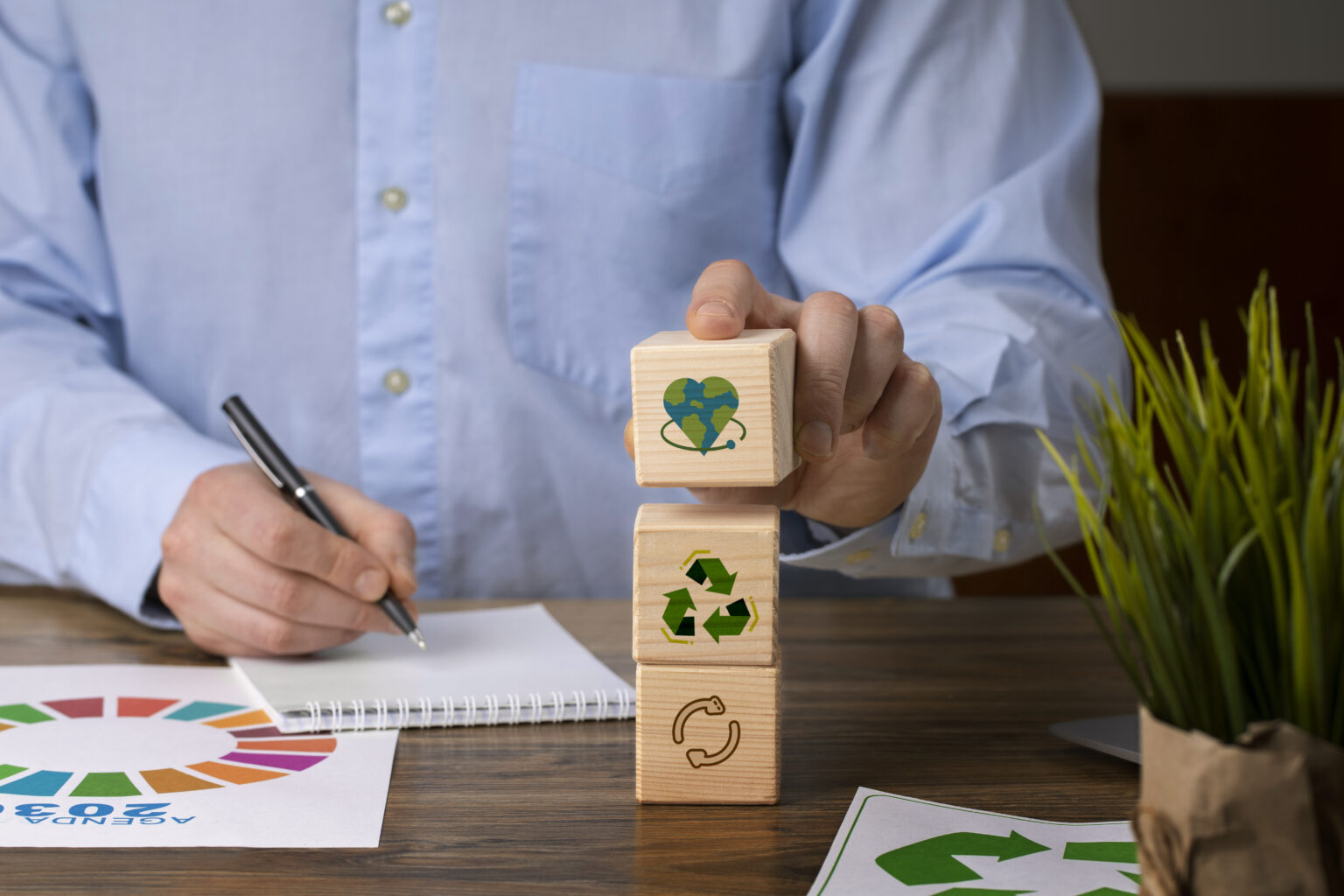In order to ensure a just and inclusive ecological transition, the Council of Europe adopted in June 2022 a recommendation to ensure a just transition to climate neutrality. Member States are invited to adopt measures that address the social and employment aspects of climate, energy, and environmental policies.
The recommendation encourages certain actions aimed at supporting those most affected by the green transition, for example by stimulating the creation of quality jobs and facilitating access to safe working conditions that protect health and safety in the context of the green transition. It also emphasises measures in the field of education and training and invites Member States to integrate the social and employment aspects of the green transition into the development and implementation of relevant national strategies.
Other measures focus on fair tax and social protection systems and ensuring access to essential services and affordable housing for those individuals and households most affected by the green transition.
The role of “green jobs” in the labour market
It is in this context that the term “green jobs” arises, which, according to the International Labour Organisation (ILO), are those that contribute to preserving or restoring the environment, whether in traditional sectors such as manufacturing and construction, or in new emerging green sectors such as renewable energies and energy efficiency.
They aim to improve energy and raw material efficiency; limit greenhouse gas emissions; minimise waste and pollution; protect and restore ecosystems and support adaptation to the effects of climate change.
The truth is that many people are unaware of this term, but green jobs are more and more present than we think. Among other things because all existing jobs are related to environmental balance.
In many situations, jobs and the quality of work depend on the absence of environmental risks and the maintenance of environmental stability.
This is especially essential when it comes to jobs in sectors such as agriculture, mining, and fossil fuel-based energy, which are directly dependent on natural resources and greenhouse gas emissions.
In addition, there are also jobs that depend on the services provided free of charge by cosystems, such as jobs in agriculture, fisheries, forestry, and tourism.
2023 proclaimed European Year of Competences
In her State of the Union 2022 speech, European Commission President Ursula von der Leyen proposed designating last year as the European Year of Skills.
And so, after several negotiations, the European Year of Capabilities will be celebrated from 9 May 2023 and end in May 2024.
“Having the necessary skills enables people to cope successfully with changes in the labour market and to participate fully in society and democracy. This will ensure that no one is left behind and that the economic recovery, as well as the ecological and digital transitions, are socially just and equitable. A workforce with the skills demanded in the market also contributes to environmentally responsible and socially just growth, fosters greater innovation and improves the competitiveness of enterprises,” said the European Commission in a press release launching the work on the European Year of Skills.
Through the European Year of Skills, in cooperation with the European Parliament, Member States, social partners, public and private employment services, chambers of commerce and industry, education and training providers, workers and enterprises, the Commission proposes to give a new impetus to lifelong learning through the following measures:
● Promote greater, more effective, and inclusive investment in training and up-skilling to realise the full potential of the European workforce and support people in the transition from one job to another.
● Ensure that skills are relevant to the needs of the labour market, also in cooperation with the social partners and enterprises.
● Matching people’s aspirations and skills to labour market opportunities, especially regarding green and digital transitions and economic recovery. Special attention will be given to activating more people for the labour market, with an emphasis on women and young people, especially those not in work, education, or training.
● Attract people from third countries with the skills the EU needs, in particular by improving learning opportunities and mobility and facilitating the recognition of qualifications.
Nicolas Schmit, European Commissioner for Employment and Social Rights, reveals that “we are talking about millions of people who need to change or simply improve their skills. This is therefore an important encounter that Europe has with its economic future, with the great transformations that are taking place, be they digital or ecological”.
The European Commission is focusing on a targeted approach to solve the growing challenge of labour shortages. Without a skilled workforce, Europe will struggle to meet its key climate and digital transformation targets for the coming decades.
The European Year of Skills is therefore the strategy to stimulate innovation, promote education and empower people to improve their skills.
The European Economic and Social Committee considers it essential to link the initiatives and policies adopted in this context to the theme of the ecological transition and the 2030 Goals and to the challenges we all face in a rapidly changing world.
It is therefore becoming increasingly clear that everyone – business, institutions, and society at large – needs to consider the transition to a green paradigm in which a much more responsible way forward is prioritised.
Supporting documents:
- Commission launches work on the European Year of Competences.
- Make a Difference Join the European Commission!
- DECISION (EU) 2023/936 OF THE EUROPEAN PARLIAMENT AND OF THE COUNCIL of 10 May 2023 on the European Year of Competences.
Links:
- https://commission.europa.eu/strategy-and-policy/priorities-2019-2024/european-green-deal/delivering-european-green-deal/fit-55-delivering-proposals_pt
- https://commission.europa.eu/strategy-and-policy/priorities-2019-2024/european-green-deal/delivering-european-green-deal_pt
- “Uma transição ecológica que não deixe ninguém para trás”: dirigentes mundiais divulgam carta aberta – Consilium (europa.eu)


